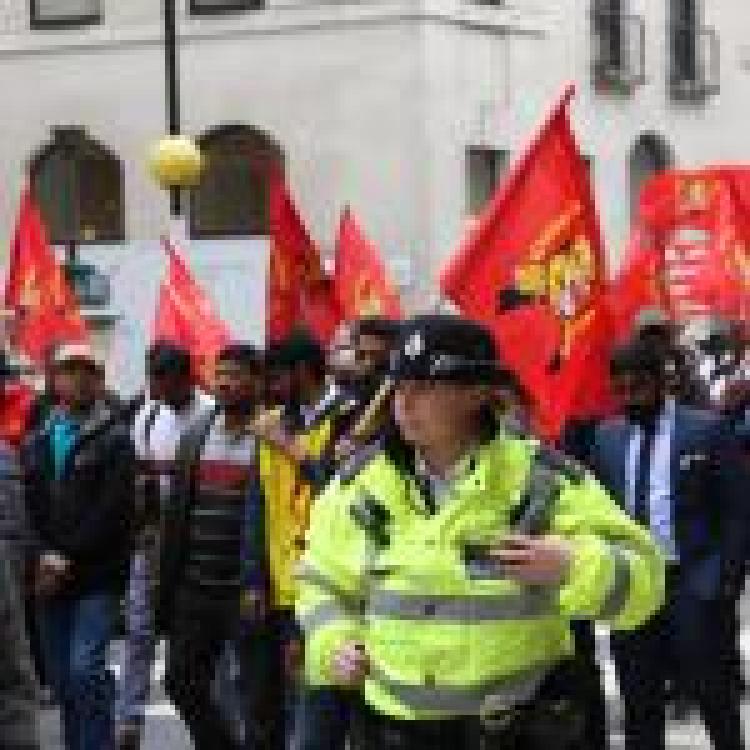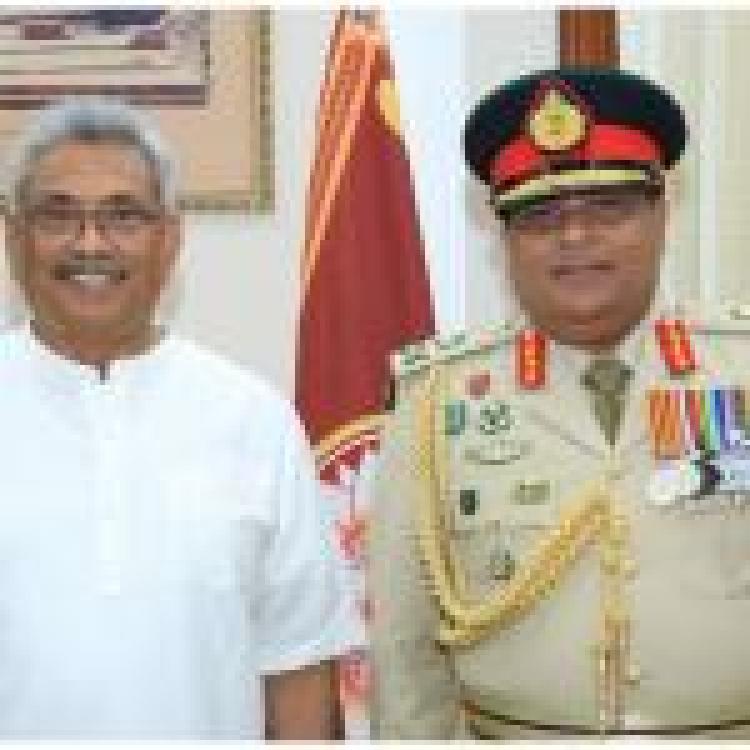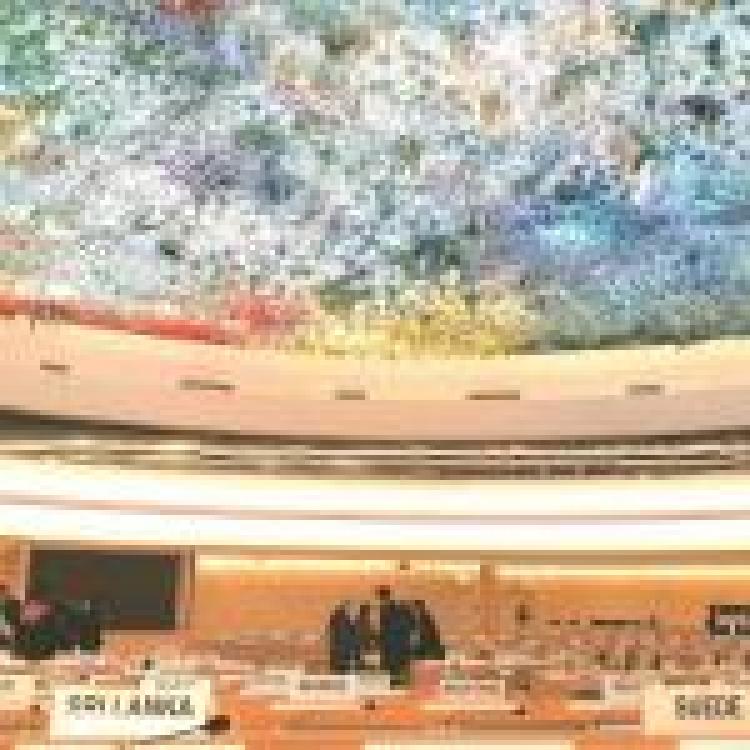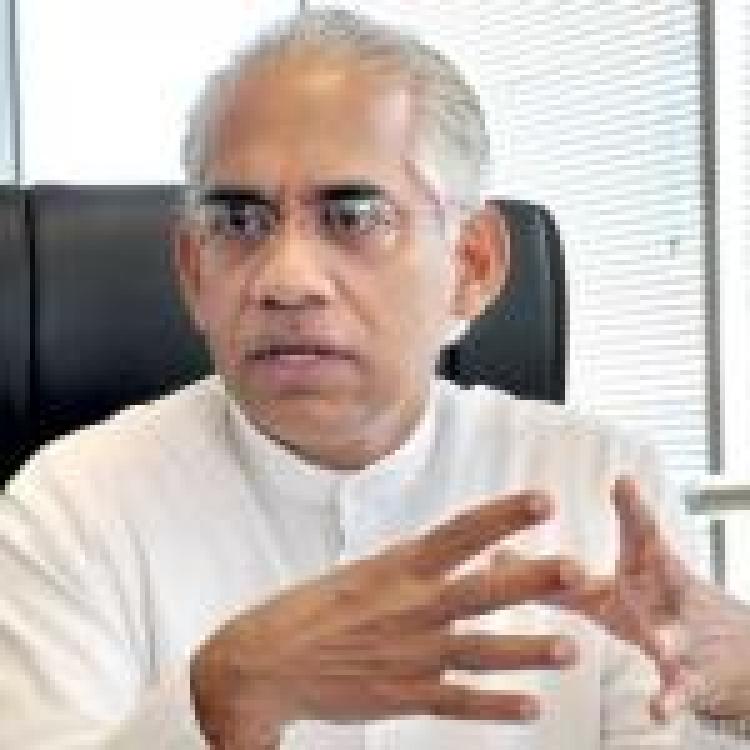In response to the passage of the UN Human Rights Council's resolution on Sri Lanka, which mandates that the collection and preservation of evidence that may be used in future war crimes trials, Sri Lankan former Foreign Minister, Mangala Samaraweera, criticised the dramatic loss of international support Sri Lanka had.
In his statement, he claimed that “Sri Lanka got the friendship and the support of the whole world” during the previous administration which co-sponsored the UN resolution 30/1.
“We had the support of the USA, the European Union, the UK, Japan, India and most of all China and Russia […] this was one of the golden moments in the history of foreign policy in this country” he stated.
“This time, we saw again that our support base has fallen to 21 countries and most of them are autocracies who are more interested in hiding or protecting their atrocities than supporting Sri Lanka”.
The resolution passed without the support of Sri Lanka, with 22 countries voting in favour of the resolution, 11 against, and 14 countries abstaining.
Failed promises
In his statement, Samaraweera claimed following the armed struggle Sri Lanka held the support of 29 countries and had promised an accountability mechanism and spoke on the 13th Amendment. He further criticises the Rajapaksa administration noting that “like all other promises of the Rajapaksa era, they didn’t bother to implement many of them”.
Under the ‘unity government’ whilst the administration had made token gestures towards reform, the Office of the United Nations High Commissioner for Human Rights reported in March 2019 that there had been “virtually no progress” on the investigation of war crimes.
Responding to questions on the administration's failure to adequately address human rights issues, Samaraweera admits that they had “failed to set up a truth commission” and claims that “a gazette notification to set up a truth commission was prepared by our government during our last days, but the present government had not issued it”.
Samaraweera has consistently warned against an international investigation, noting in 2019 that Sri Lankan soldiers may face prosecutions abroad through universal jurisdiction. In 2017 he told Chatham House that “there is only consensus for establishing a credible domestic mechanism”.
In his statement, Samaraweera highlights how his government acted to delay UN action, noting with respect to the OSIL report that:
"We got them to agree not to table that report in March and instead we requested time till September to submit our own resolution which will cover the question of reconciliation and accountability".
This allowed for the administration to "present our resolution for a national independent judicial mechanism". He stated the aims of the resolution were to “protect the pride and dignity of our country, our people and our security forces and also to make our tri forces to be internationally renowned armed forces”. He, alongside then Prime Minister, Ranil Wickremesinghe, would attempt to portray the passage of the UN resolution 30/1, “to the Sinhalese Buddhist majority as a foreign policy win for Sri Lanka and as a move that saved the country from further scrutiny and international action”, notes former Senior Lecturer in Law at University of Jaffna, Dr Kumaravadivel Guruparan.
His continued calls for a domestic inquiry have been lambasted by international legal experts as well as former and current UN officials who highlight Sri Lanka’s consistent failure to tackle the issue of impunity. Ahead of the UN Human Rights Council Session, Sri Lanka’s current Foreign Minister announced another domestic inquiry to examine all previous inquiries into war crime allegations.
In a joint statement, former and current UN officials decried this as a “meta-investigation” and stated that were it not for the seriousness of the subject, the attempt was laughable.
Peacekeeping Missions
In his statement, he highlights the support Sri Lanka secured from the major international leaders and noted that President Obama would refer to Sri Lanka as the "good news country". It was this relationship, he maintains, that enabled him to hold discussions with the US Ambassador to the UN, Samantha Power, which allowed for the Sri Lankan army to be submitted for UN peacekeeping matters.
"We were admitted and I believe even today, there are members of the armed forces gaining quite high salaries working in the peacekeeping forces".
The International Truth and Justice Project (ITJP) has called for the suspension of all Sri Lankan peacekeepers following the release of the UN human rights commissioners report. The report highlighted that the Human Rights Commission of Sri Lanka, which is responsible for the vetting of Sri Lankan troops, has been "politicised and its independence undermined by the appointment of a former Government minister as its chairperson" the ITJP stated in a press release.
Following the appointment of war criminal Shavendra Silva as Sri Lanka's Army Commander in 2019, the UN suspended Sri Lankan troops from peacekeeping except where operations could be endangered. Despite widespread criticism of Silva's appointment, Sri Lankan troops were seen saluting Silva before being deployed to South Sudan in November 2020.
The Sri Lankan Army has been accused of human rights violations in Sri Lanka and in Haiti. During a peacekeeping mission in 2007, over 100 Sri Lankan peacekeepers were identified as being a part of a child sex ring. Sri Lankan troops were accused of exchanging food and money for sex with girls and boys as young as 12. While most of the accused were repatriated, none have been criminally prosecuted.
Read more here: UN peacekeepers in Haiti ‘fathered hundreds of babies’ with young girls with violence and coercion
Read a full transcript here.





